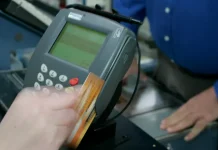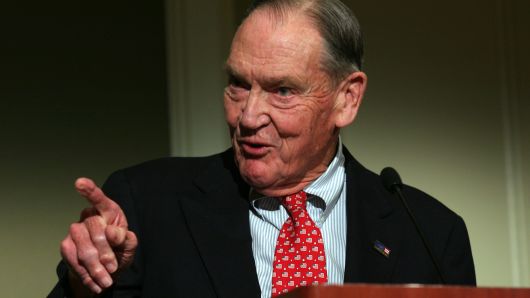
U.S. stocks finished slightly lower Tuesday as investors found few reasons to take prices substantially higher, with no fresh signals from the Federal Reserve and no new developments in U.S.-China trade talks.
The Dow Jones Industrial Average DJIA, -0.13% closed off 34 points, or 0.1%, at 26,058, the S&P 500 index SPX, -0.08% edged 0.1% lower to 2,793, failing to close at or above a psychologically significant level at 2,800 for the first time since Nov. 8. The index touched that level on an intraday basis but wasn’t able to close at the level on Monday.
Meanwhile, the Nasdaq Composite Index [: COMP] edged 0.1% lower to 7,549. (All of the closing figures are on a preliminary basis). Separately, the index of small-capitalization stocks, the Russell 2000 index RUT, -0.71% saw the most pronounced decline on the day among big equity benchmarks. Federal Reserve Chairman Jerome Powell affirmed the central bank’s decision last month to halt interest-rate hikes amid slower global growth and financial-market “crosscurrents.”
“With our policy rate in the range of neutral, with muted inflation pressures and with some of the downside risks we’ve talked about, this is a good time to be patient and watch and wait and see how the situation evolves,” Powell told the Senate Banking Committee on Tuesday. In corporate news, shares of Home Depot Inc. HD, -0.88% declined after the home-improvement giant reported quarterly results that were weaker than expectations. Caterpillar Inc.’s shares CAT, -2.43% fell after being downgraded to sell from buy by UBS.
Home Depot and Caterpillar proved the biggest drag on the Dow industrials on Tuesday. Meanwhile, shares of Tesla Inc. [s:TSLA] shares were in focus after a federal judge gave Musk until March 11 to explain why he shouldn’t be held in contempt of court after a recent tweet drew criticism from regulators. In economic reports, the number of new homes under construction fell in December to an annual rate of 1.08 million, from 1.21 million rate in November, the Commerce Department said. That is the lowest level since 2016. On the bright side, consumer confidence surged in February, rising for the first time in four months, as the Co
nference Board’s consumer confidence index rose to 131.4, up from 121.7 in January.
























